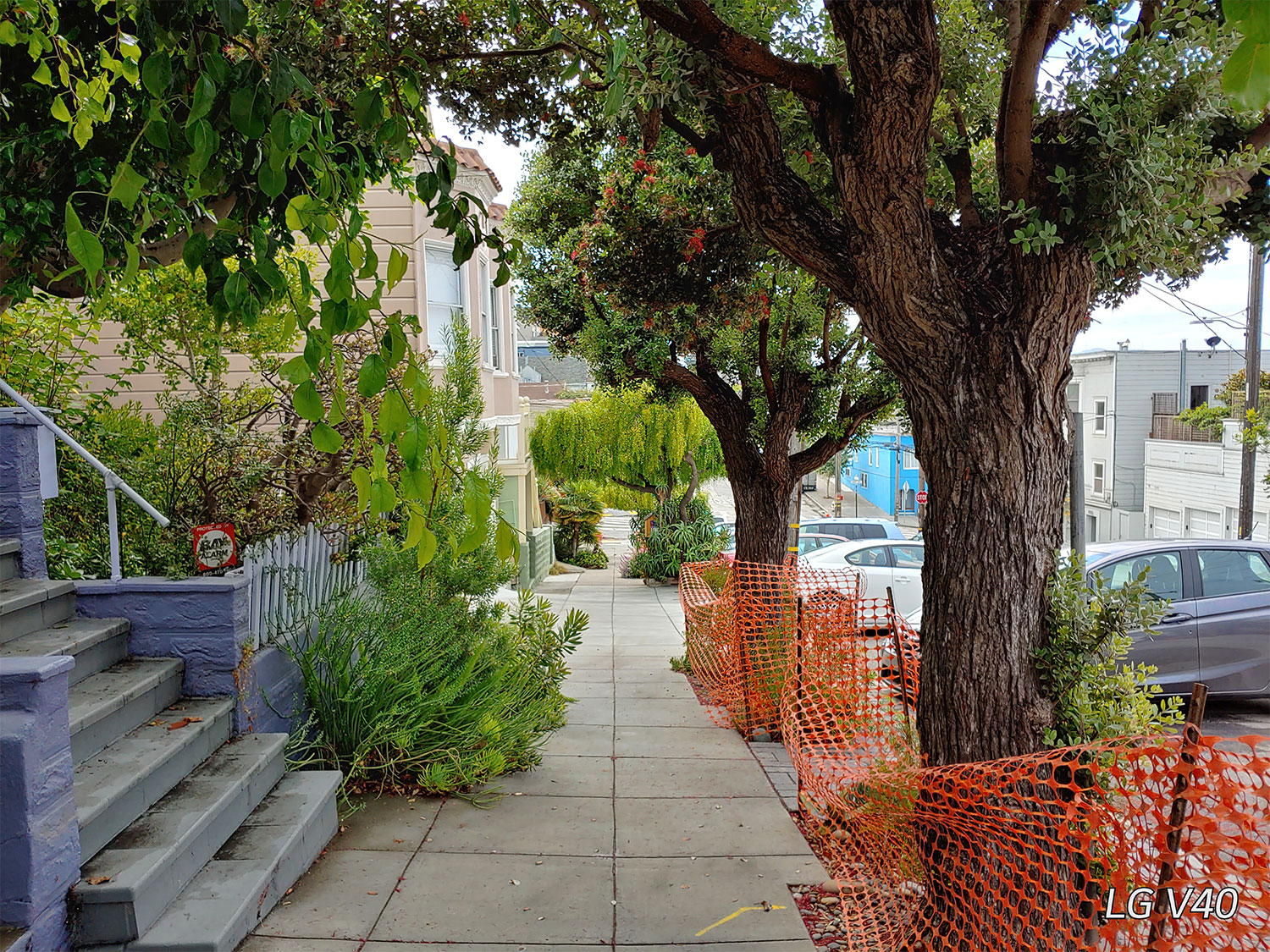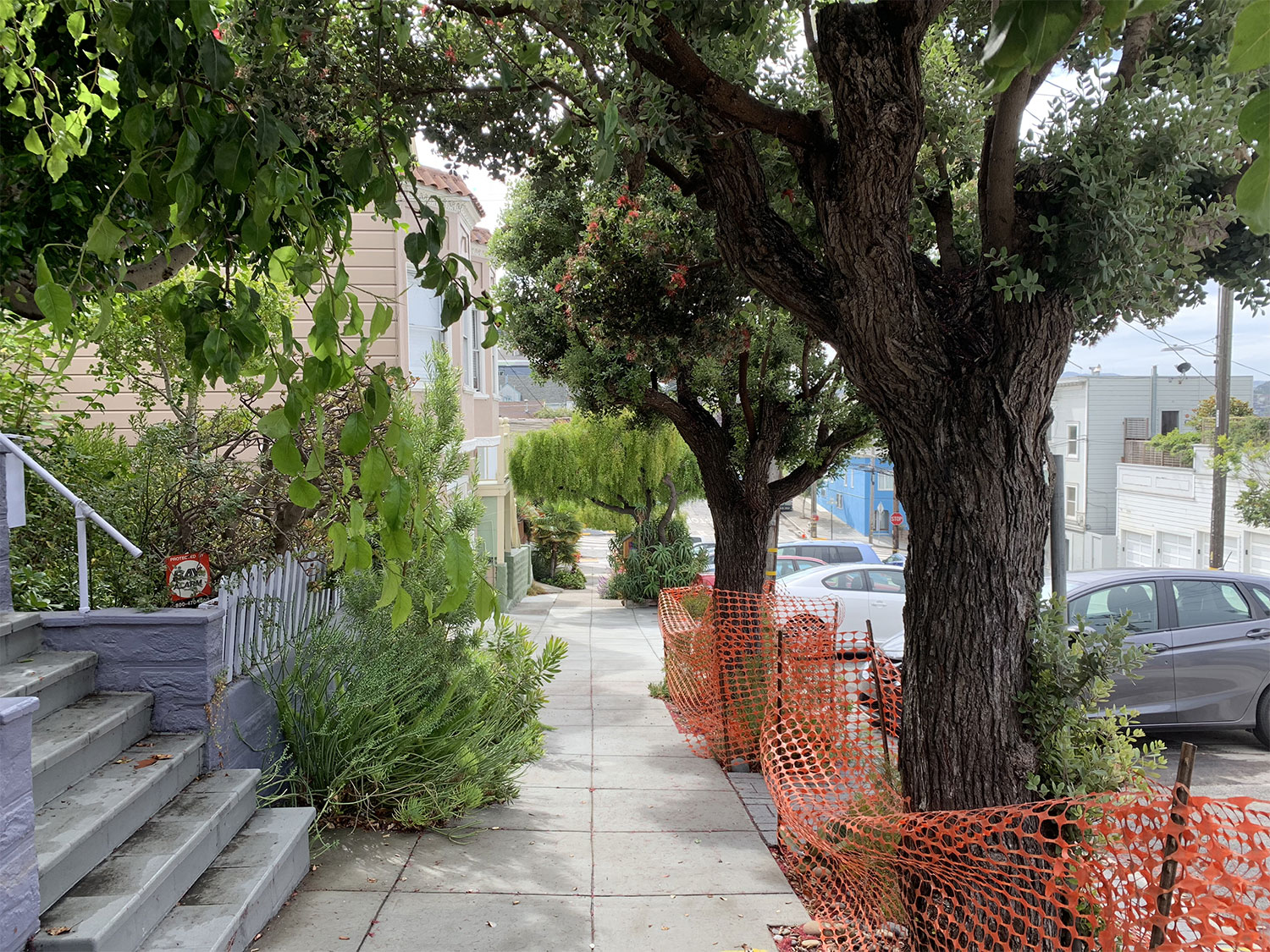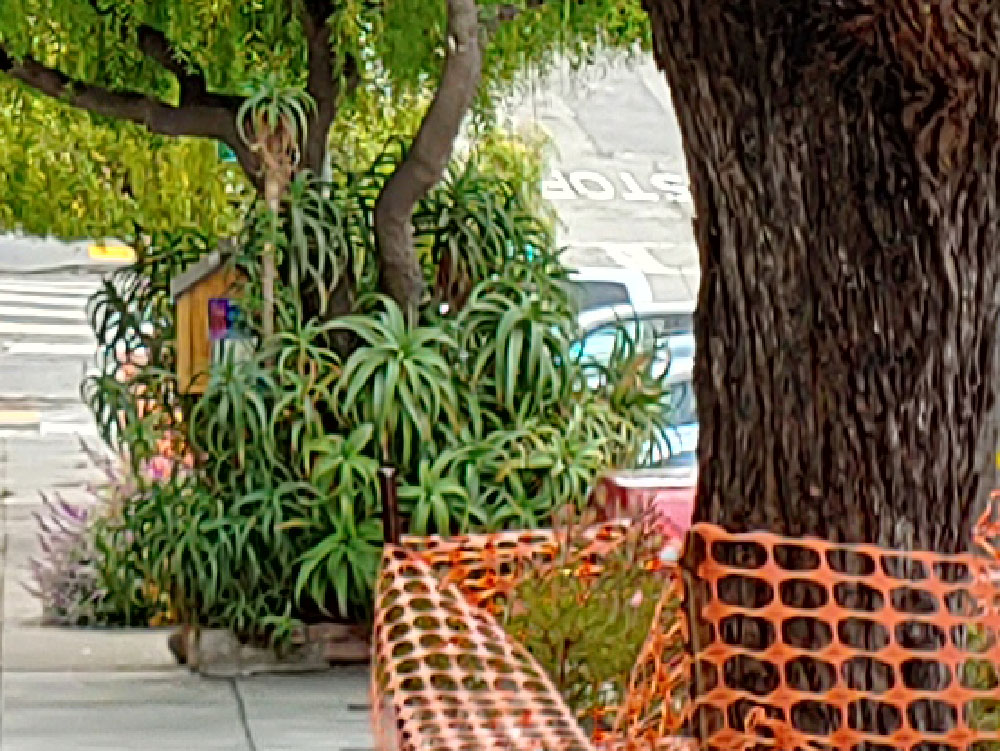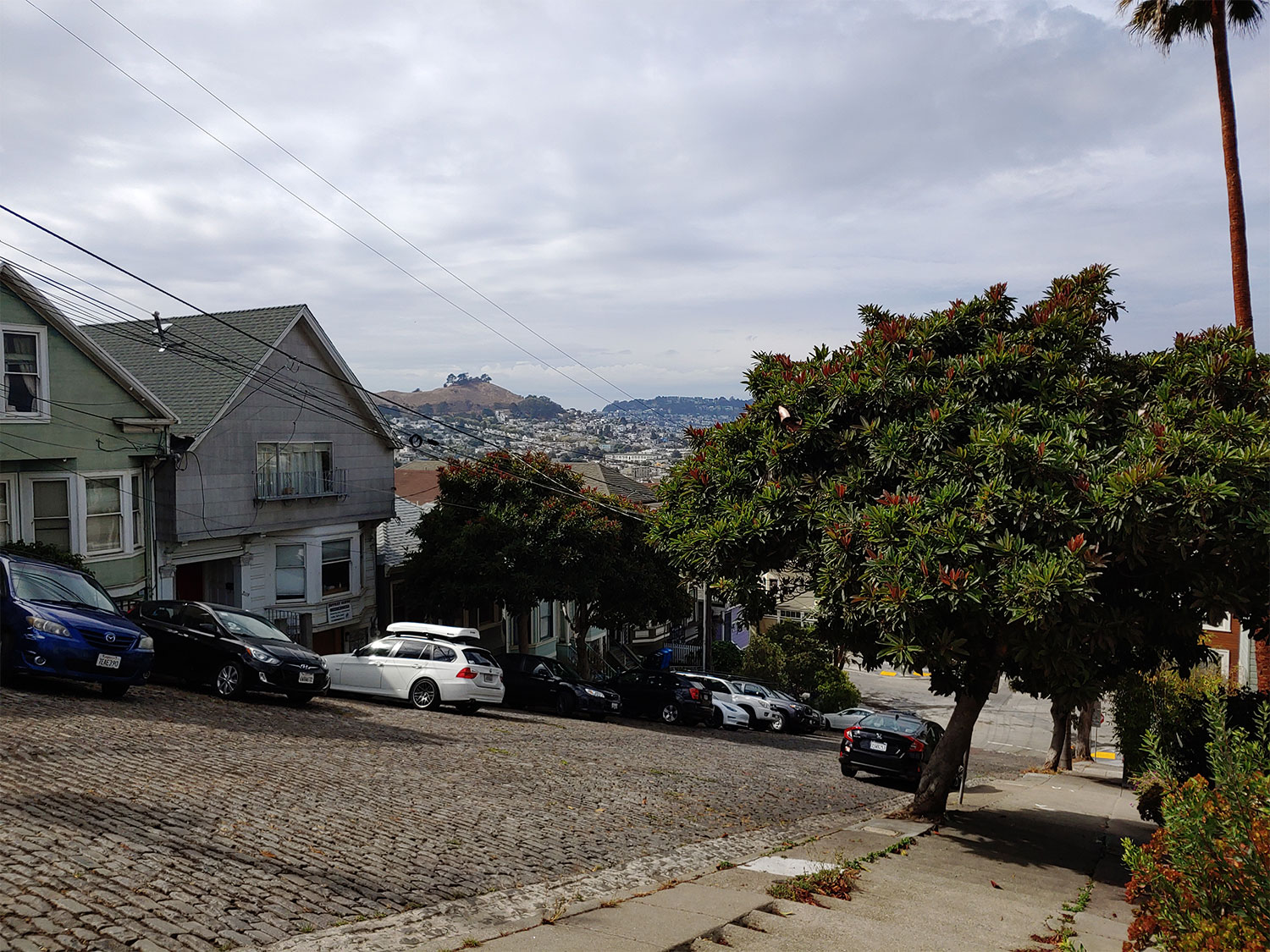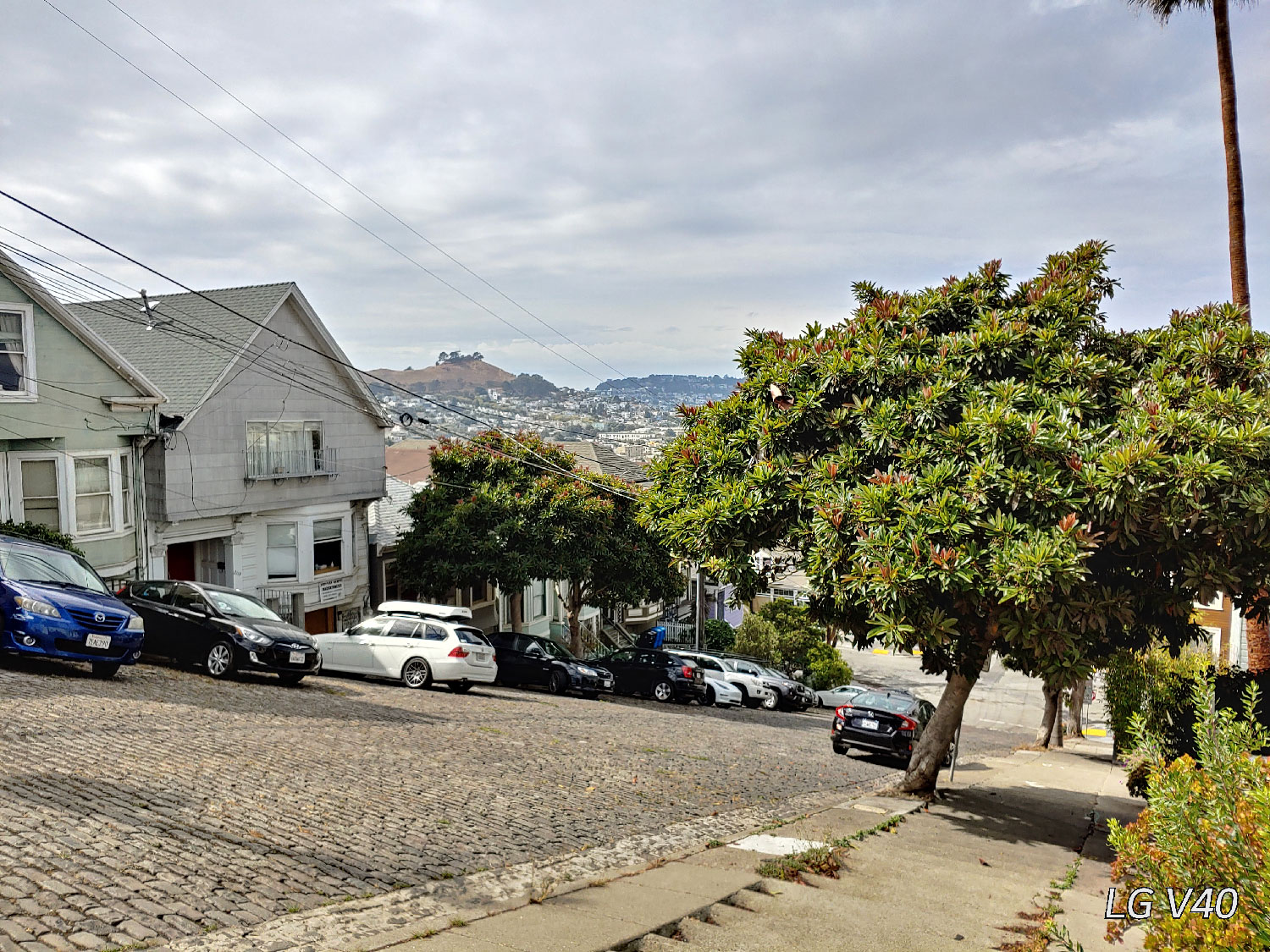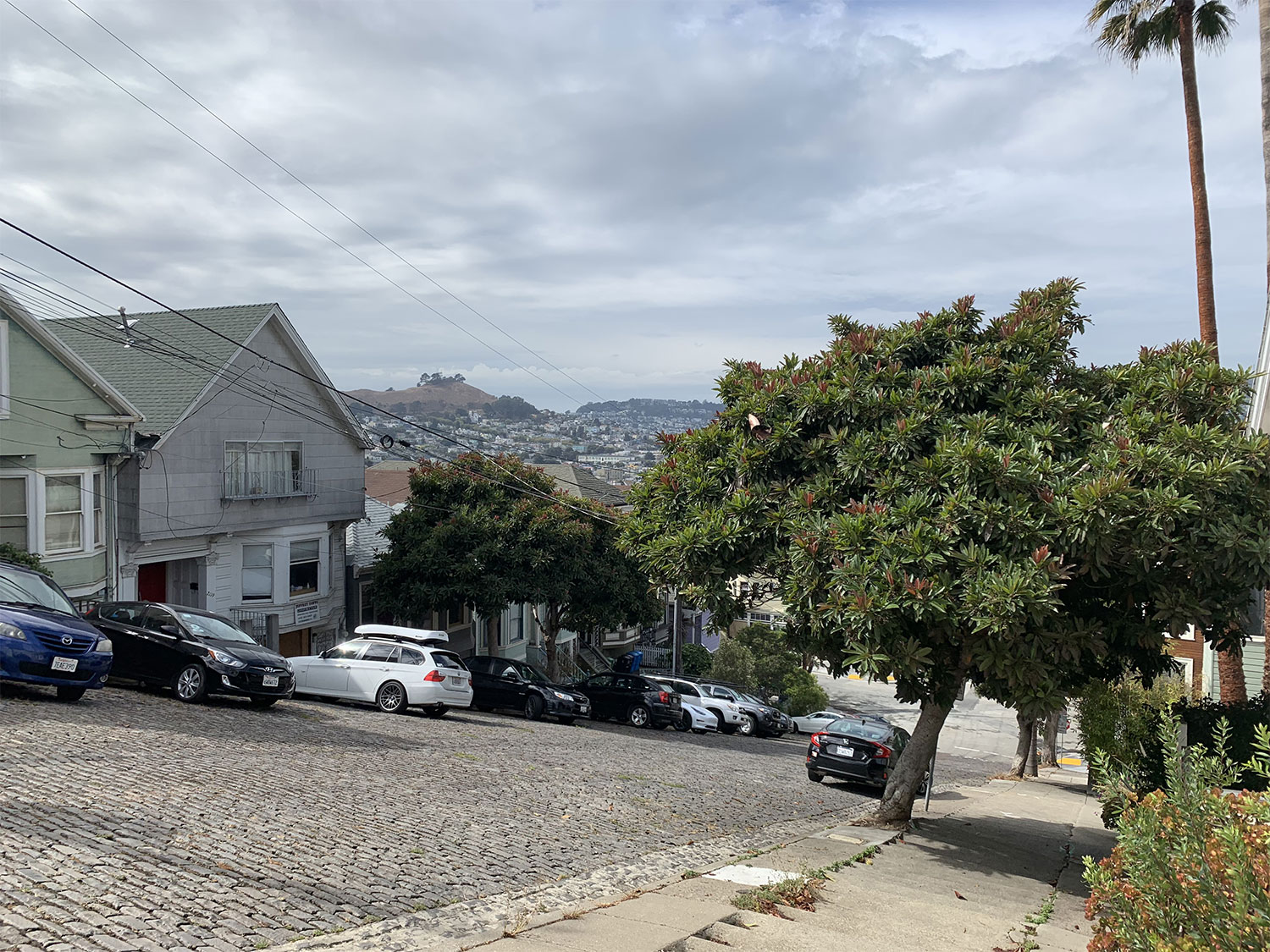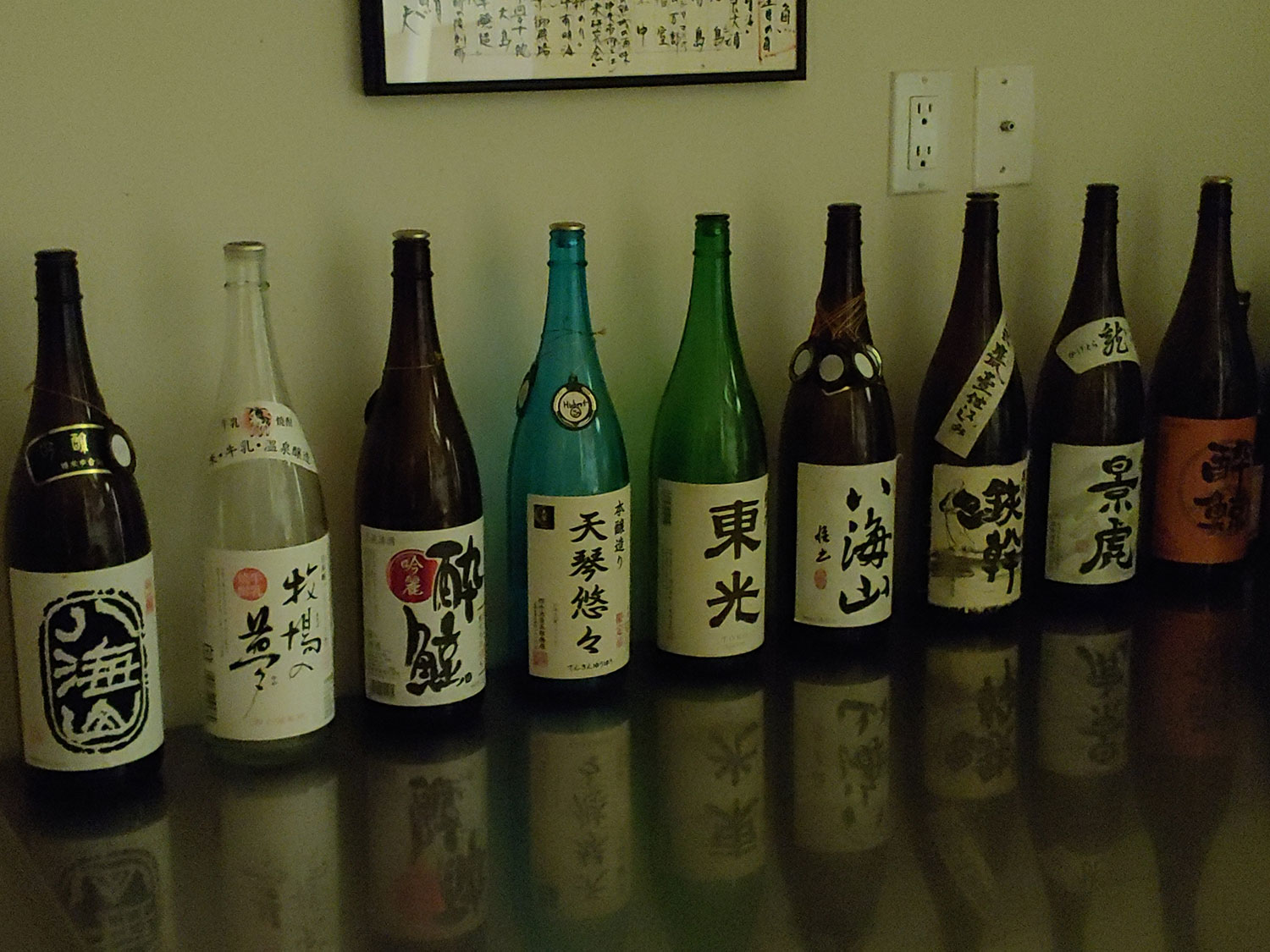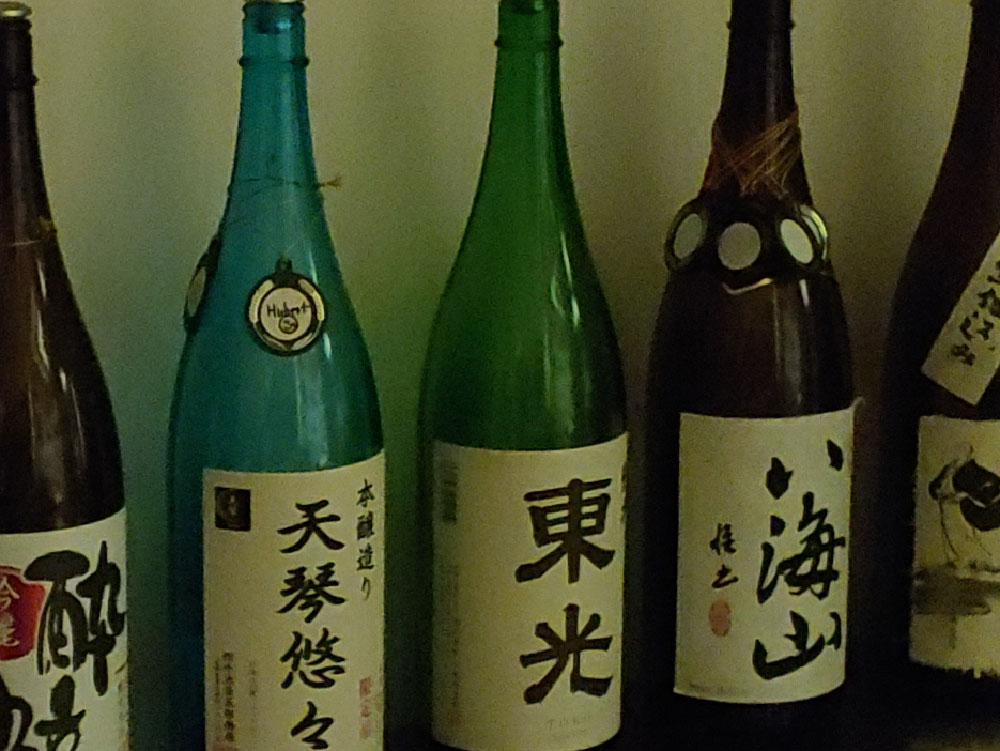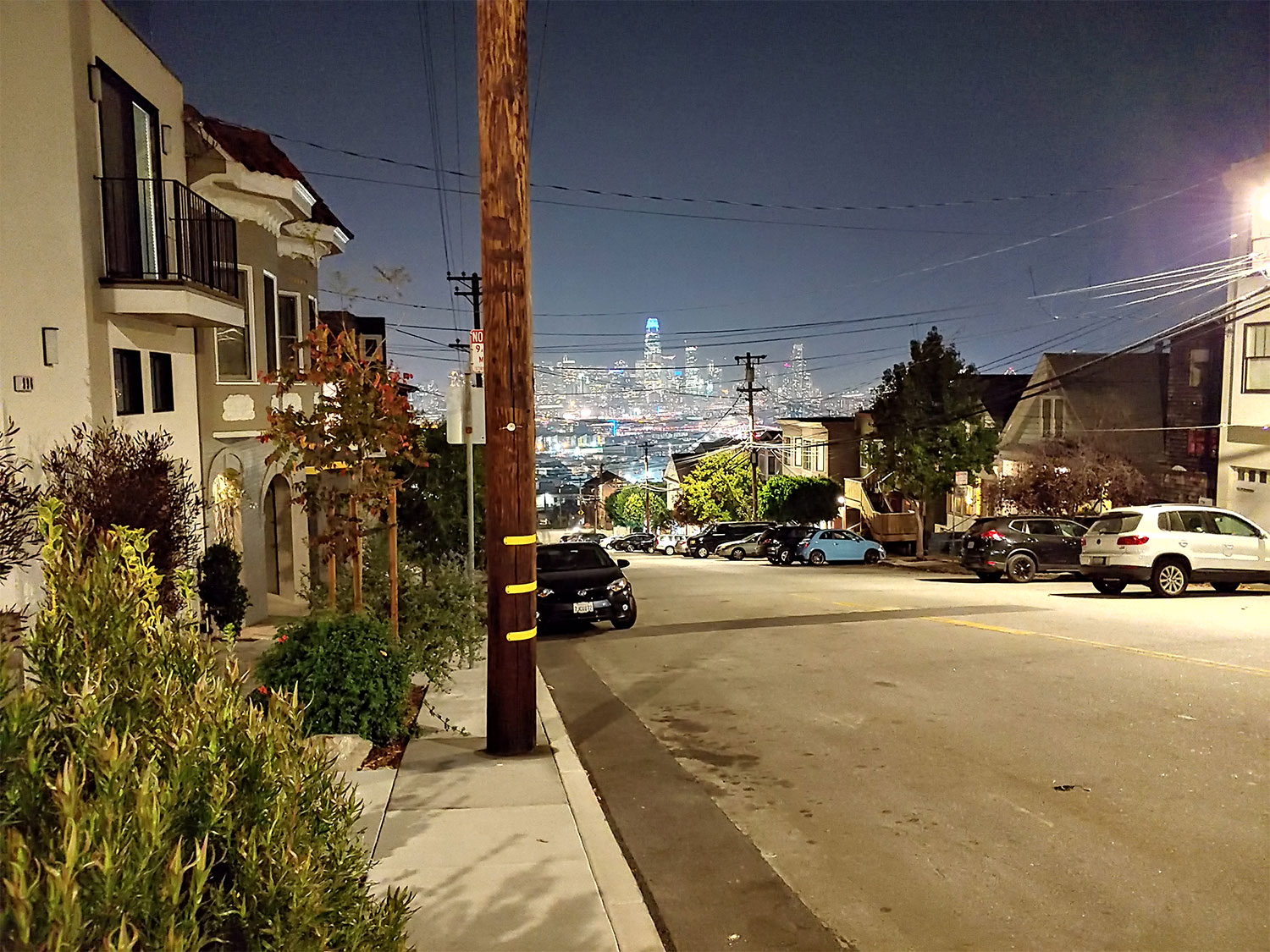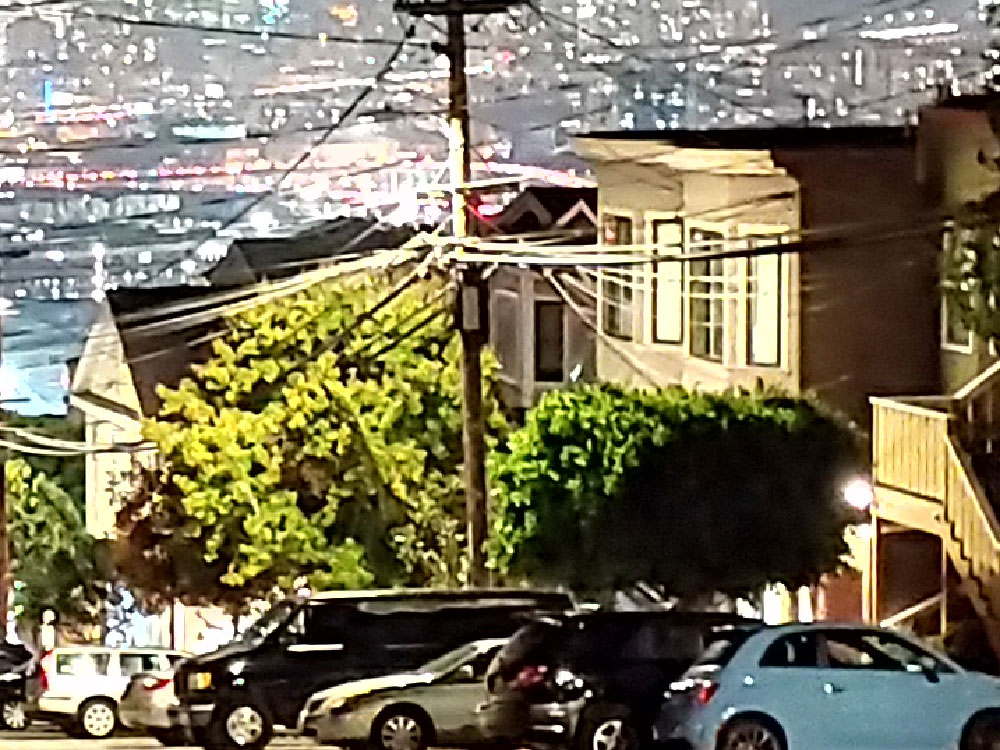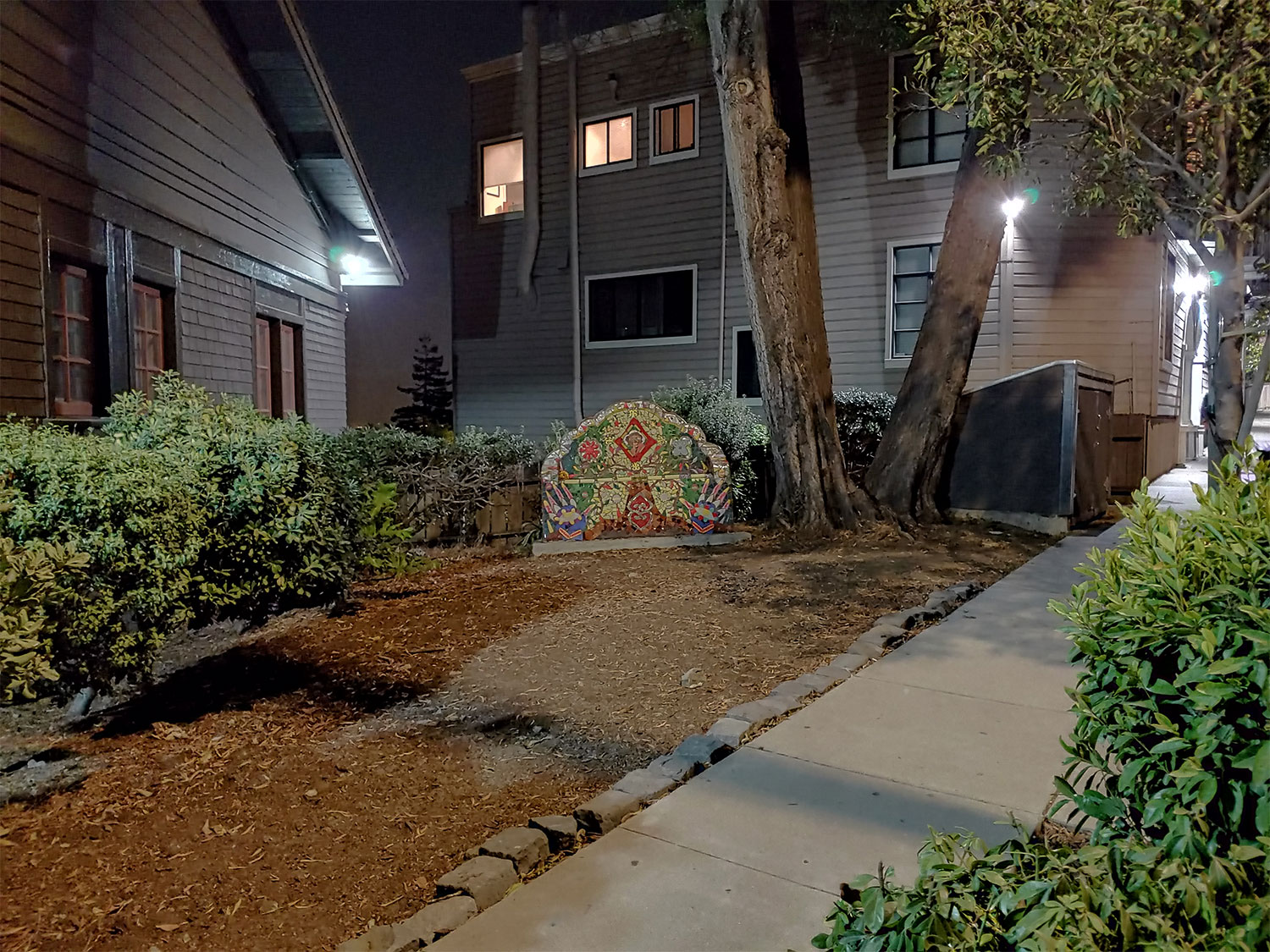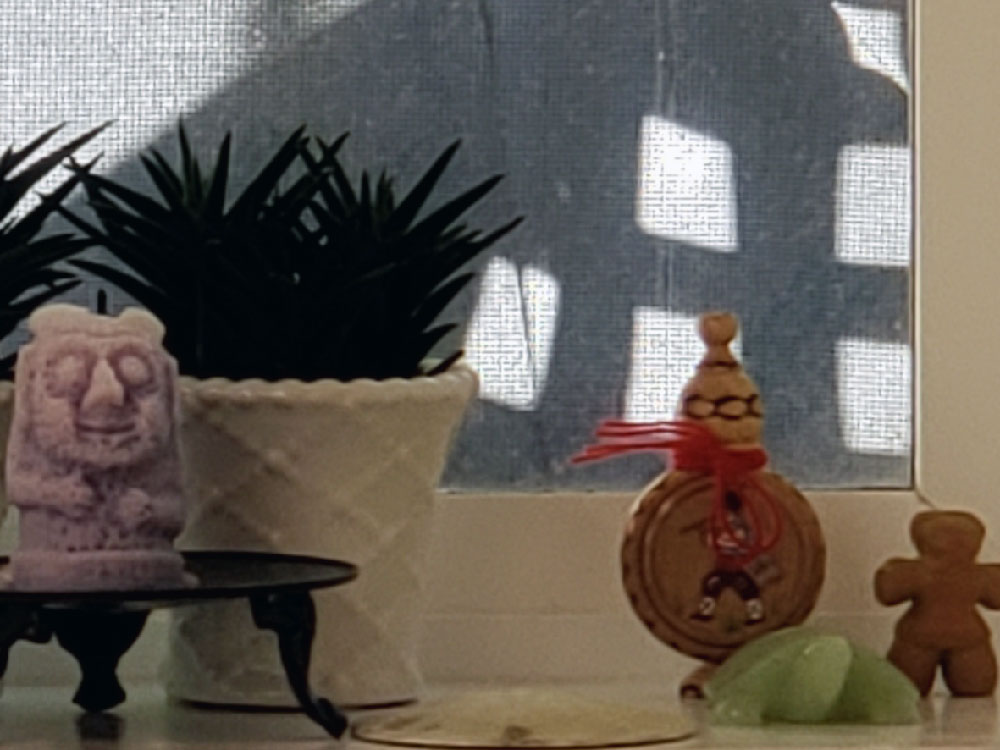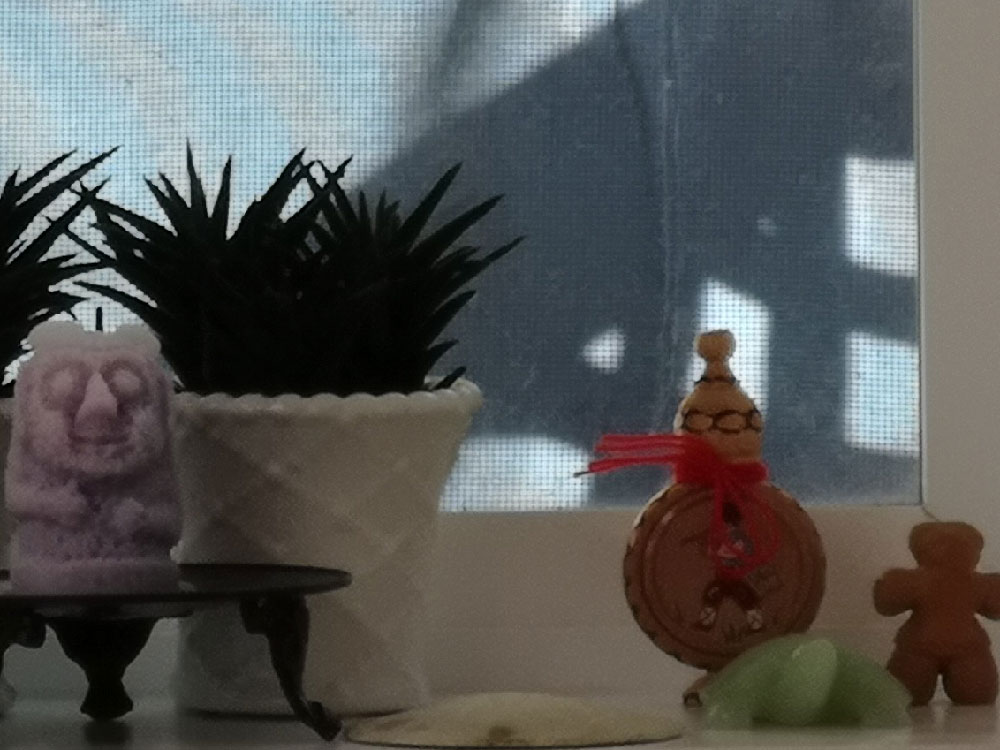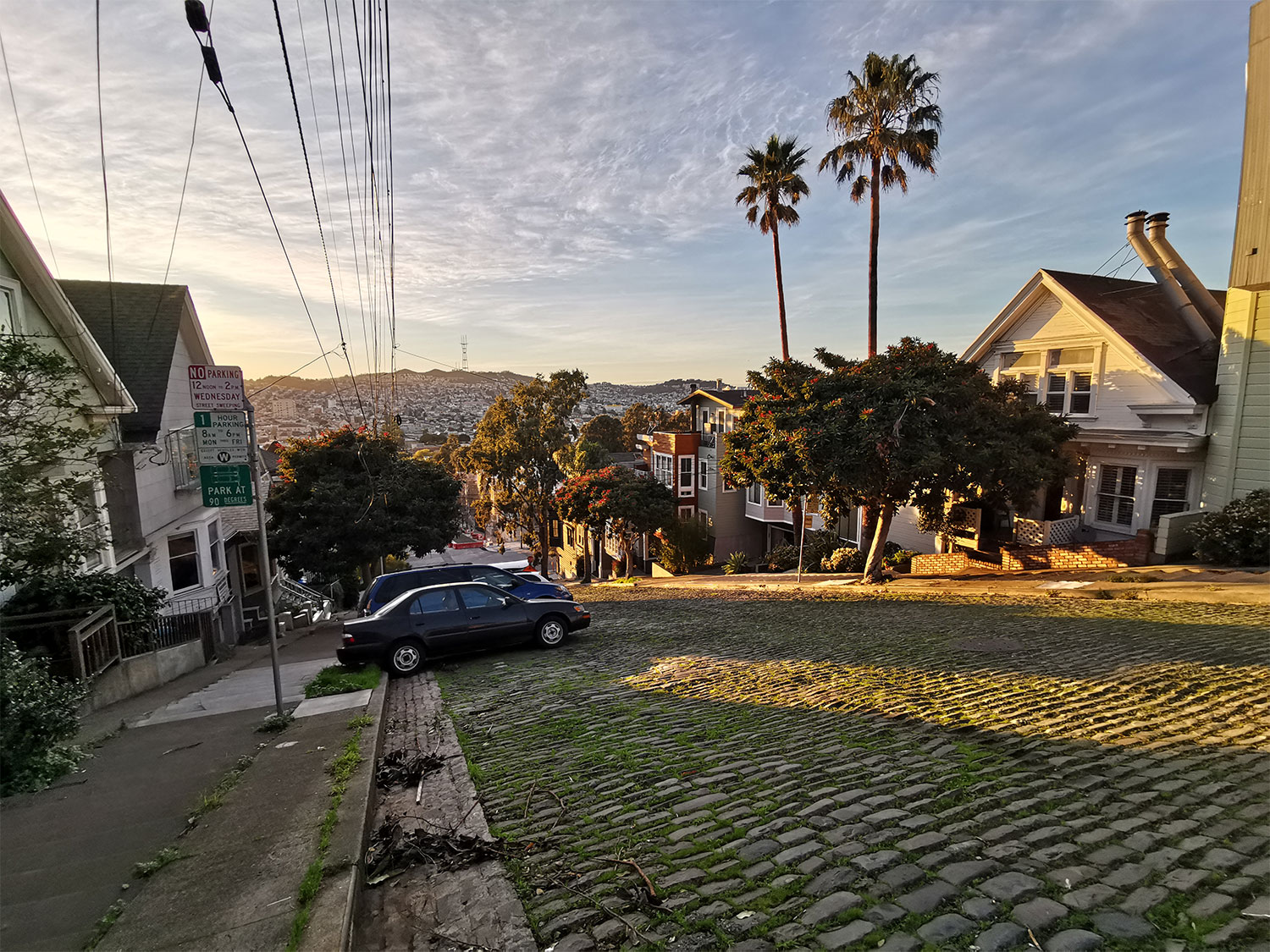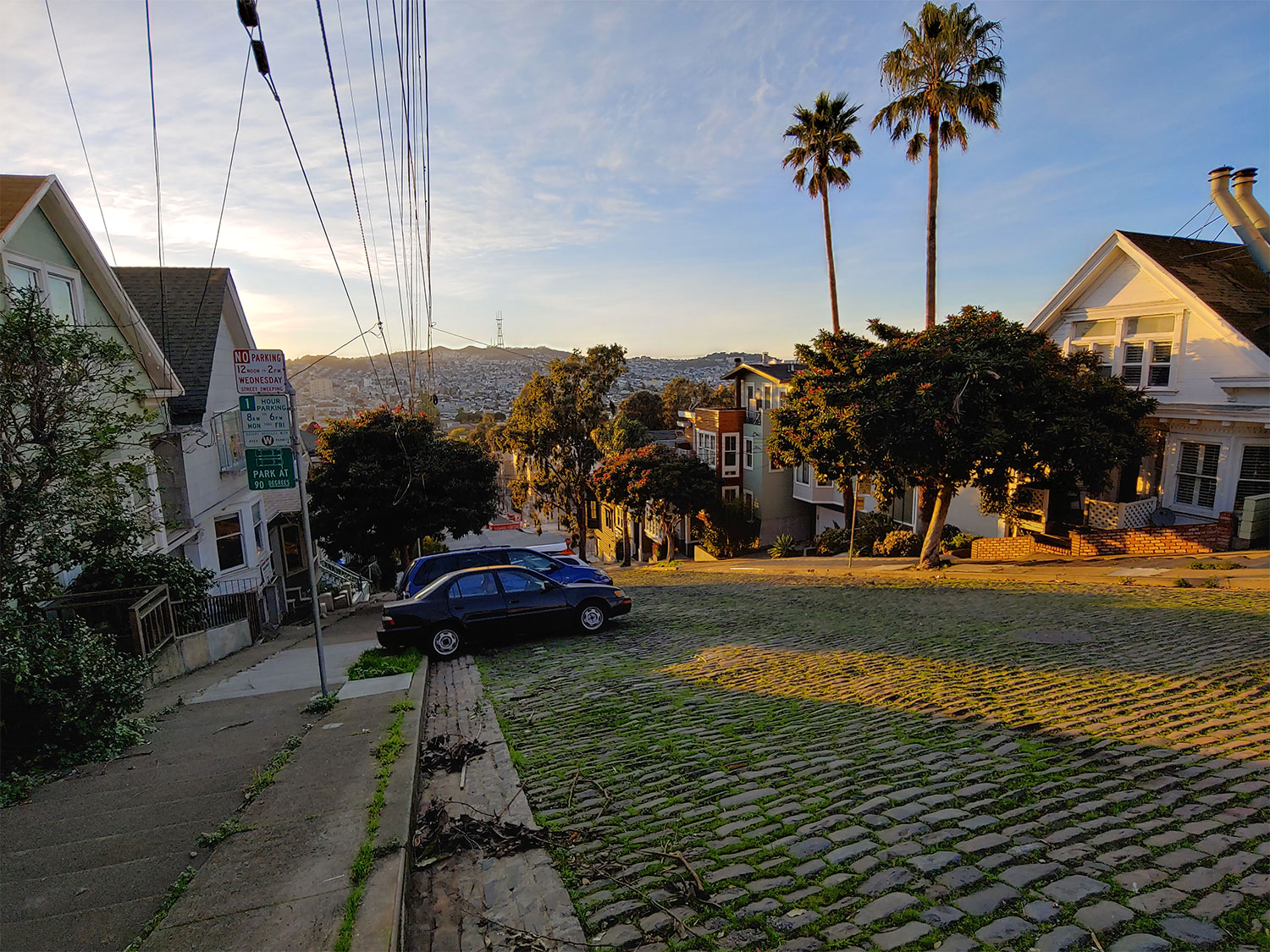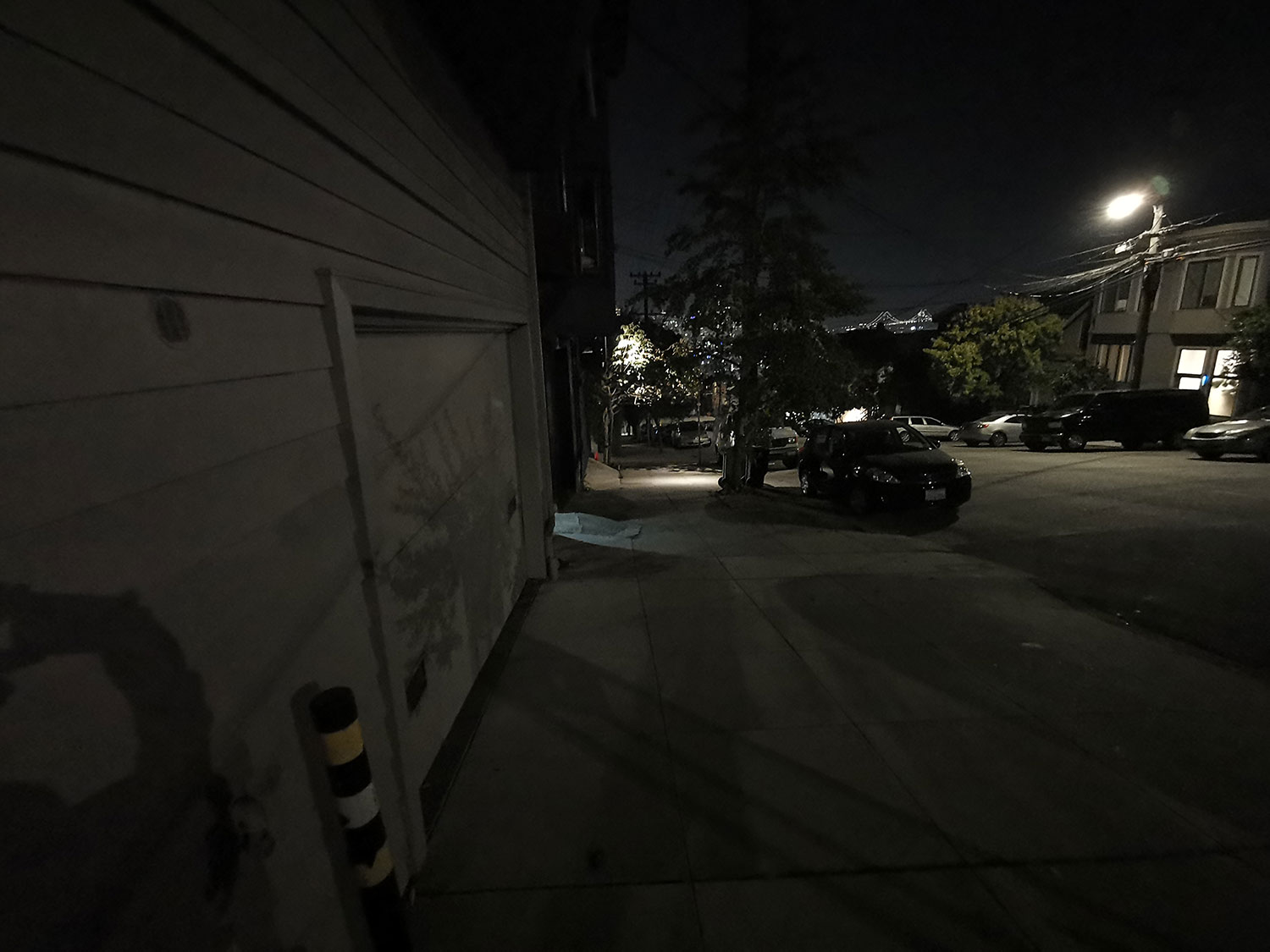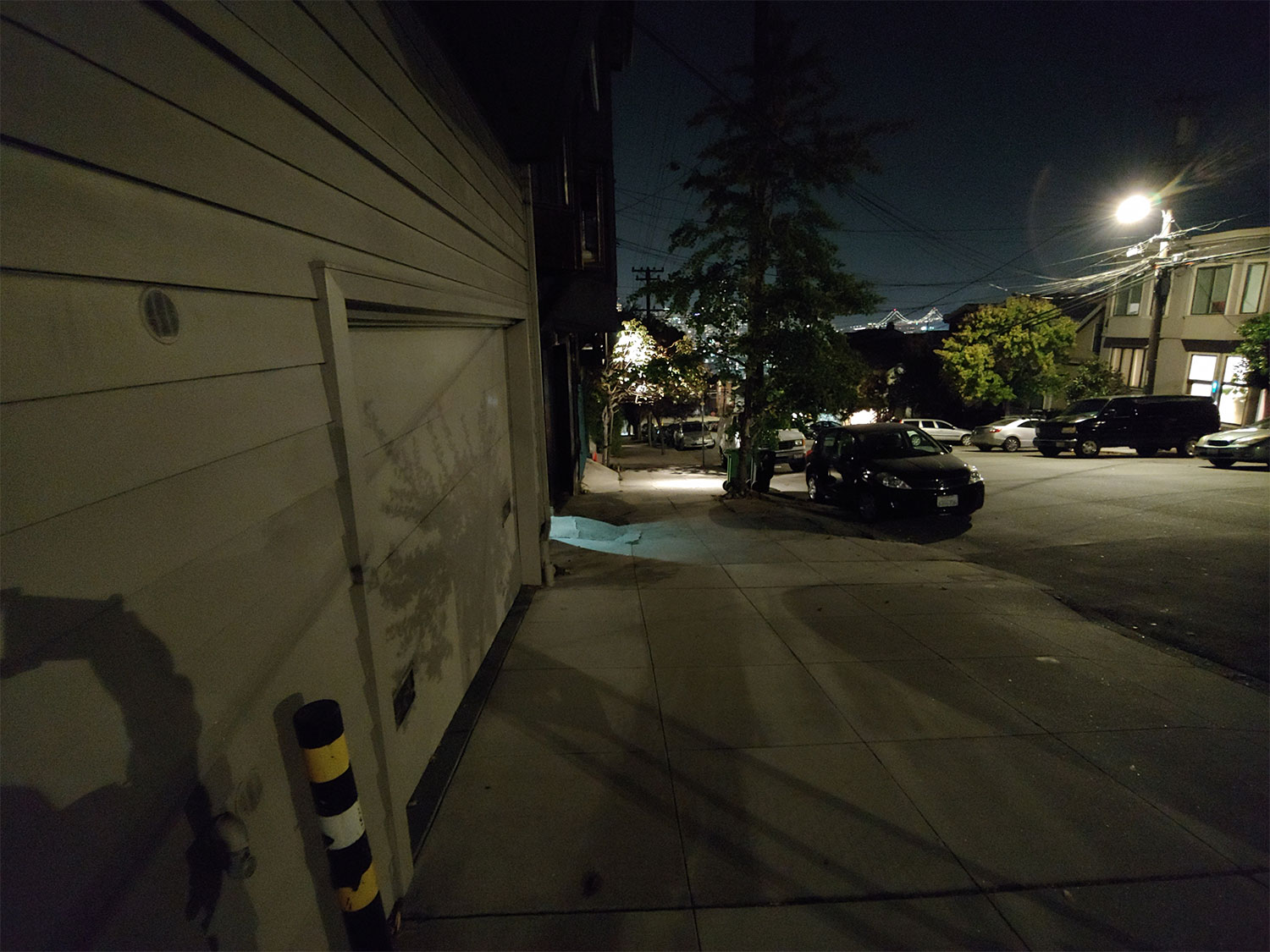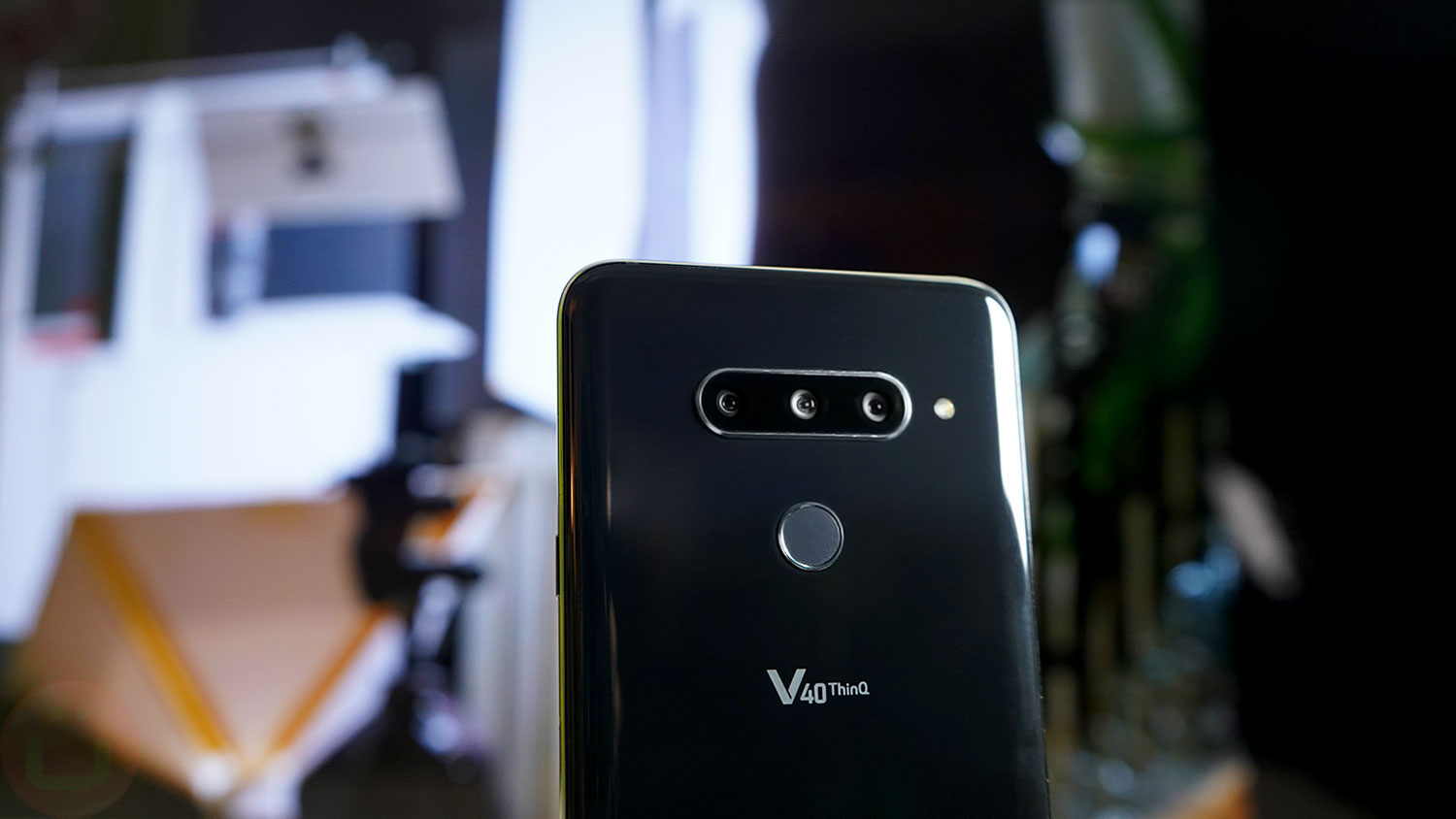
The LG V40 is LG’s current top smartphone, as the V-Series is the high-end, technologically advanced line of smartphones. As such, it was the first to pack a triple-lens setup, offering a 2X optical zoom lens, and a 16mm Ultrawide lens in addition to the primary camera. This means that it has hardware support for all four pillars of our Uber IQ mobile camera score. How does it translate in actual image quality? Let’s find out.
Learn more: what is our Camera IQ score?
Key Camera Specifications and Uber HW Camera Score
- Rear Camera System (3 cameras)
- Primary: 26mm focal length, f/1.5 aperture, 12 Megapixel, OIS
- Zoom: 52mm, f/2.4 aperture, 12 Megapixel
- Ultrawide: 16mm, f/1.9, 16 Megapixel
The LG V40 was the first mobile camera to introduce three focal lengths (16-26-52mm), making it the most versatile smartphone camera system when it launched in October 2018.
To achieve this within a reasonable bill of material (BOM), LG has carefully picked the camera components to achieve a delicate balance between image quality, versatility, and price. As such, it achieves a relatively high hardware score:
Learn more: what is our camera hardware score?
Image Quality Analysis
Important: let’s clarify some terminology we’ll be using:
- “image processing”: software work that improves the image data quality
- “image filtering”: software work that changes the style (aesthetic) of the photo.
- “context photo”: a great approximation of what we see
- Including how dark the scene actually is
- Only to provide the context of the shot.
- Not a quality benchmark
A note about the Uber IQ Camera Score: our camera scoring system is based on four “Pillars” or sub-scores that provides much-needed nuance: day, night, zoom and ultrawide photography.
Daylight Photography: 173
Out of the box, the LG V40 does take lovely daylight pictures that you would be hard-pressed to criticize if you saw them without any context. But since we’re here to compare the V40 camera to the best out there, let’s dig deeper!
The LG V40 has a tendency to increase color saturation and uses a good amount of image filtering to remove noise and increase color contrast. That’s very noticeable if you compare it with a more natural-looking approach like on the iPhone XS, which ranks higher in Daylight IQ. Note: the soleil shrined a bit through clouds in the XS pic, but the remarks are still correct.
There is some loss of detail (tree trunks and leaves), and that happens when filtering is applied heavily, and this is quite noticeable in a cropped view, but less so on social media.
The LG V40 has an HDR mode that kicks in when needed, but we found that the jump between HDR and non-HDR is a bit wide. In general, the camera does well, but the HDR mode is filtering -heavy as well. In fact, it seems that blending the two images would yield a perfect balance…
The iPhone XS best represents what your eyes are looking at. Right now, we mostly look at filtering from a data-preservation perspective and going a bit away from “Reality” doesn’t change the score much. But as a potential user, you can decide if you like the filtering “style” of the LG V40 or not because there’s little you can do to change it.
Low-Light Photography: 172
In uniform low-light situations, the LG V40 can do great. For example, these bottles are in a 0.5 LUX light environment. This is just at the threshold of when your eyes can still correctly perceive colors. The context shot shows you how dark it is, and of course, smartphones will all brighten the scene at various levels.

Context Photo: the 0.5LUX scene with natural colors and brightness
At a glance, a comparison with the Google Pixel 3 doesn’t seem to yield a lot of differences. The Pixel does a better job at getting the color hues right, while the LG V40 is making things somewhat greener than they should, but it’s not too far off the reservation.
A closer look at the cropped view shows that the LG V40 has a less blocky noise pattern and sharper details than Pixel 3. That would be noticeable on a tablet or a PC for example.
In a more complex low-light scenario like a city view that involves highlights, street lamps, and tricky exposure settings, the LG V40 is having more difficulties. In this challenging city shot, the LG V40 produces an image that is a bit unnaturally bright, while the Pixel 3 does a noticeably better job at it, even if it’s still brighter than what your eyes perceive.
But when you look closer, you can see a sizeable difference in image quality as the combination of sensor pixel-binning, over-exposure, and noise-reduction filtering takes a toll on both the colors and details of the photo. Believe us, low-end cameras would get killed in this kind of scene, so it’s still pretty good, but we use it challenges faced by this camera.
This below scene with a colored tile art is a bit less challenging, and that’s why there isn’t a whole lot of difference at first glance. The pixel is artificially boosting the saturation beyond what the natural color hues are, but not excessively.
Looking closer, you can see that the Pixel 3 preserves a lot more details, and that’s probably due to the Pixel-Binning that LG is using, trading off sensor detail (12MP -> 4MP -> 12MP) for higher light sensitivity. I’m not sure that binning was needed in this particular scene, and arguably, the V40 could have taken a good picture without it.
This kind of details is not always critical if you are looking at photos on the phone, or sharing to social media. However, it does play a role in making the LG V40 score a bit lower than the Google Pixel 3 with both still being high-end performers.
Zoom Photography: 80
Many phones have a 2X optical zoom, but that in itself doesn’t mean much in terms of image quality, which is why the Uber IQ Zoom score is so useful. The LG V40 is in the Top 8 in terms of zoom performance.
Our plus toys photo is an excellent illustration of the situation because a lot of cameras will ultimately lose the furry texture, the outline details (or have heavily processed outlines). The LG V40 stand in the camp of cameras that have less image-filtering, but more noise. The iPhone XS is like that for instance. It shows more natural details than the OnePlus 6T for example.

Context shot, what the scene looks like when zoomed in
It would not be surprising in many people prefered the 6T filtering effect. On the other hand, it is outperformed by the Samsung Galaxy Note 9‘s 2X optical zoom lens, despite looking superficially similar on paper.
Finally, the Huawei Mate 20 Pro (and P20 Pro) remains the ultimate zoom (3X) phone at publication time, the photo will speak for itself. Notice how this camera doesn’t need image filtering. Looking at previous pictures, you can tell how image filtering can destroy original details sometimes.
The same results can be found in other scenes that contain a mix of organic details (candle, plants) and low details (drawings, prints). Again, the results are pretty straightforward to measure and interpret.

Context photo (zoom)
By the way, you can see how the Galaxy Note 9 uses image processing to highlight some of the details and competes against the Mate 20 Pro’s use of raw camera zoom power. The Note 9 looks less natural, but puts up a high performance, for a 2X zoom.
Ultrawide Photography: 129
As the brand that introduced Ultrawide (~16mm focal) photography to the smartphone market, it is quite suitable to see LG lead here. At Ubergizmo, we have advocated that Ultrawide is much more useful than a 2X zoom for the past ~3 years, and other tech experts such as Ben Sin and many more would agree.
At the Ultrawide high-end, LG mostly competes with itself (LG G7, LG V30) but its main competitor is the Huawei Mate 20 Pro. Our tests showed a couple of things: First, the LG V40 Ultrawide camera dominates in low-light situations.
Secondly, the Huawei Mate 20 Pro does etch a small win in a daylight situation, mainly because LG’s HDR algorithm isn’t performing as consistently as Huawei’s. You can see this in the tree leaves, which are abnormally dark.
This is something that we have seen frequently (and mentioned) with recent LG phones. If you don’t know the context of the photo, you may not realize it. But from an image quality point of view, it matters. Fortunately for LG, it still wins overall to end up being the best Ultrawide camera at publishing time.
Conclusion and Uber IQ Camera Score
The LG V40 camera system is a poster-child for versatility and is probably the most underrated mobile camera on the market. Yet, if you look at it objectively and entirely, it is one of the most powerful mobile camera systems.
But thanks to sub-scores that make sense, you can look beyond the global score to truly understand if the LG V40 is for you.
"THE MOST UNDERRATED MOBILE CAMERA ON THE MARKET"The bottom-line is that if you don’t care about Ultrawide photography, you have better options. You can see it clearly in our complete Camera IQ score table (follow the link below). If you have never had an Ultrawide photo experience, we encourage you to take a good look at it, because it’s a fantastic tool to have.
Suggesting that a Panorama can replace Ultrawide is nonsense because ultrawide shots work much better with dynamic scenes and capture instantly. There’s nothing like it, and that’s why it is one of our four mobile photography “pillars.”
| Uber IQ Camera | Sub-scores |
|---|---|
| Day | 173 |
| Night | 172 |
| Zoom | 80 |
| Ultrawide | 129 |
Learn more: what is our Camera IQ score, and full rankings
Thanks for reading our complete review of the LG V40 Camera. If you want to learn about the rest of the phone, don’t miss our LG V40 smartphone review.
More in-depth mobile camera reviews are coming, so connect with us on Instagram, Facebook, and YouTube to be notified of new scores, and more. For the latest handset reviews and news, add us to your Google News by clicking on the “Follow” button there.
Filed in . Read more about Camera Benchmarks, Editorspick and Mobile Camera Reviews.
